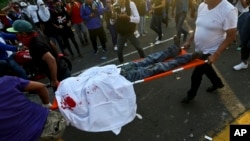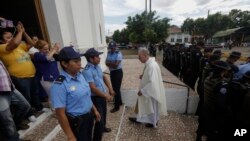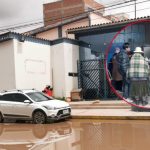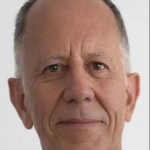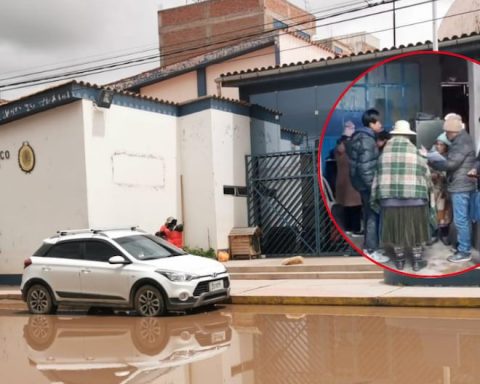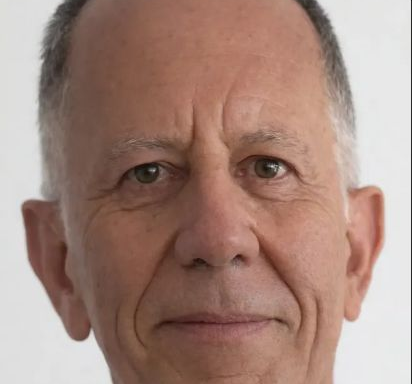April 17 marked the fifth anniversary of the beginning of the anti-government protests in Nicaragua that left more than 300 dead, dozens injured and detained and triggered one of the worst crises on the continent in recent decades, with no way out in sight. said analysts consulted by the Voice of America.
The Central American country has drawn international attention for reports of human rights violations, and almost half a million Nicaraguans have emigrated to neighboring Costa Rica and other countries in the region, many fleeing the government of Daniel Ortega. Since 2018, more than 350 Nicaraguans have been killed by paramilitary groups, according to the Inter-American Commission on Human Rights (IACHR).
Ortega has radicalized his position before the international community, which has demanded an end to the repression, and has responded even more aggressively, according to analysts. He has expelled the Vatican representative in Managua, Waldemar Stanislaw Sommertag, and has withdrawn the approval of diplomats Hugo Rodríguez, proposed by President Joe Biden as ambassador to Nicaragua, and the new European Union ambassador Fernando Ponz.
The former presidential candidate and former Nicaraguan political prisoner Juan Sebastián Chamorro, who is in exile in the US, assures that the demands initiated in the 2018 protests “continue more valid after everything that has happened.”
“Now there are more reasons to continue in this fight. We are still in a prison country. The violation of all rights is flagrant. Repression has intensified in all its forms and, above all, one very important thing, are the murdered, the crimes committed,” Chamorro said at a meeting at the Wilson Center, a think tank in Washington, to analyze the situation in Nicaragua.
Chamorro appreciates that international organizations, particularly the United Nations, have begun to speak of crimes against humanity in Nicaragua, and that will lead Ortega and his circle “inexorably to international justice.”
International community must reassess strategies
Experts gathered at the Wilson Center stressed that the international community must reassess the strategies to put pressure on the Ortega government.
Benjamin Gedan, director of the Latin American program at the Wilson Center, stressed that it is time to “pay attention once again to the consequences of authoritarianism in Nicaragua.”
Nicaragua is the second poorest country in the Western Hemisphere. Inflation continues to rise and affects services, giving way to food insecurity, experts at the Wilson Center said.
“Ortega has essentially tried to blame us for all his problems, claiming that the CIA is hiding in the shadows. While Moscow, Havana or Beijing might have encouraged them to play that false card, the good people of Nicaragua are not so gullible,” said Ambassador Mark Green, president of the Wilson Center.
US interests are particularly focused on the relationship that Nicaragua seeks to strengthen with Russia, China and Iran, according to experts. Felix Maradiaga, a former presidential candidate in Nicaragua and a former political prisoner, assured that Ortega “continues to see China, Russia and Iran as the sponsors of his anti-American sentiment.”
But at an economic level, the US continues to be Nicaragua’s main trading partner. About 60% of all Nicaraguan exports go to the US. Nicaraguan textile exports to the US, which in 2006 barely reached 879 million, represented 1,996 million in 2021, according to data from the US embassy in Managua. Gold exports to the US in 2021 totaled some 942 million dollars, while those of coffee reached 235 million dollars.
From January to July 2022, Nicaraguan exports to the US in total reached 2,529 million dollars, reflecting a year-on-year growth of 16.35% compared to the same period in 2021, according to data from the Center for Export Procedures (Cetrex).
Nicaragua’s economic relations pose a national security interest to the United States, said Eddie Acevedo, a senior adviser to the president at the Wilson Center and an expert on Latin American affairs.
According to Acevedo, Washington should focus on Nicaragua because of the impact on trade.
“The United States has the Central American Free Trade Agreement. Nicaragua at this moment is the only country with which the United States has a trade deficit,” Acevedo pointed out.
The DR-CAFTA (Free Trade Agreement between the Dominican Republic, Central America and the US), seeks the creation of a free trade zone between the signatory countries. El Salvador, Costa Rica, Guatemala, Honduras and Nicaragua are part of the treaty and enjoy tariff benefits.
The US has imposed sanctions that include the cancellation of visas and the freezing of assets in the US on the circle close to President Daniel Ortega and some Nicaraguan entities accused of committing human rights abuses, including the National Police and the Distribuidora Nacional de Petróleo company ( DNP).
The former president of Colombia, Iván Duque, said at the meeting at the Wilson Center that the sanctions against the Nicaraguan government must continue to be applied even though they are not “the ones that overthrow regimes”, but they demonstrate “consistency and coherence to say that there are behaviors that they cannot be tolerated by the international community,” he added.
Duque made a call to “advance” a complaint before the International Criminal Court against Rosario Murillo and Ortega “for the systematic violation of human rights, for crimes against humanity.” It is necessary that the complaint be supported by world leaders and the international community, added the former president.
Ortega’s persecution of the Church
Attacks on religious freedom in Nicaragua, which began since the 2018 social outbreak, have intensified, said Stephen Schneck, US Commissioner for Religious Freedom.
“The Nicaraguan government increased its pattern of harassment against the Catholic Church with actions that crossed a threshold of severity never seen before,” Schneck said. “The Nicaraguan government’s human rights abuses have affected the entire progress of society, especially those seeking to practice and express their faith,” he added.
Bishop Rolando Alvarez, a critic of the government’s actions, is in prison in Nicaragua, sentenced to more than 26 years in prison on charges of conspiracy, propagation of false news and contempt for authority, among others, considered “false” by the Center Human Rights Organization (Cenidh), the Nicaraguan Human Rights Collective Nunca Más, and other human rights organizations.
Ortega recently banned Holy Week celebrations, suspended processions and arrested about twenty parishioners who tried to defy the restrictions.
Over the past five years, analysts have identified “different levels of repression” by the Ortega government, said Fiorella Melzi, monitoring coordinator for the Inter-American Commission on Human Rights (IACHR), but more recently they are seeing “a complete closure of participation in safe spaces”.
“What we saw a couple of weeks ago with the arrest of people for religious integration, against freedom of religion. It shows us that the situation is getting worse,” Melzi concluded.
Connect with the Voice of America! Subscribe to our channel Youtube and activate notifications, or follow us on social networks: Facebook, Twitter and Instagram.
